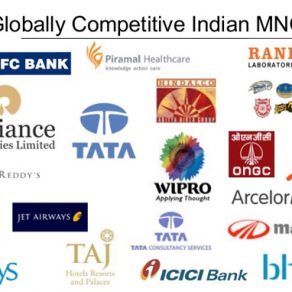As a business travel consultant, ProKonsul has seen these simple steps to secure immediate savings in client business travel programs. Use them today in your program!
The single biggest objective that travel managers have today is to drive savings. These savings can be direct hard $$ or indirect soft $$ savings. Listed out some of the top saving strategies implemented by customers of ProKonsul.
1. Global VAT Reclaim
This is the single biggest saving opportunity inherent in business travel programs across emerging markets like India.
This single category allows for savings of up to 29% on overseas business travel expenses in specific countries. The expense categories permitted for reclaim are specific and include all accommodation expenses food & business entertainment.
Additional categories include overseas MICE expenses, marketing & consultants fee, amongst others. The most attractive aspect of securing Global VAT Reclaim is that any fees payable in only if you receive an actual refund. The paperwork is simple and business travel consultants like ProKonsul facilitate submission to the individual tax offices of the designated countries.
2. Domestic VAT Reclaim
Effective handling of domestic reclaims can secure 18% plus savings on domestic hotel expenses. The impact of air ticketing ranges up to 5% on the actual air ticket costs. This aggregates to a substantial annual benefit. While deploying internal finance & accounts resources is effective, it may be more financially prudent to deploy external VAT recovery specialists. External specialists are more conversant with the overall process and prove more efficient from the resource and cost standpoint.
3. Smart buying strategies
Much of the procurement for business travel suppliers in emerging markets like India, is still based on a traditional “ supplier aggregation model”.
This means most business travel programs have an inflated list of preferred hotels & airlines, with whom the travel/ procurement department has contracted a preferred rate. However, there is limited consolidation of spend, which results in fragile relationships that have limited value and almost nil incremental year-on-year benefits.
Smart buying implies having a limited set of truly preferred vendors who get a significant proportion of your business travel reservations. When this happens & you fulfill your volume or market share commitments, they would recognize you as a credible committed client with an ability to shift business.
This develops stronger client-vendor collaboration & normally results in incremental year-on-year benefits which have both direct & indirect value.
4. Optimize Travel Administration Resources
It is common to see small and mid-size travel programs in India (travel spend between $1-3 Million) have a high number of internal staff resources, who administer the program, support internal customer inquiries & keep checks on vendors.
Globally, it is seen that multinational travel programs can be managed through a single internal resource if the technology is deployed intelligently and irrelevant controls are removed.
It is important to conduct regular business travel audits and continuously refine internal processes, so superfluous resources don’t get added. As a guideline, your internal travel admin resource cost should not exceed 1-2% of your overall business travel program spend at the maximum.
5. Domestic car hire
Most emerging markets like India require domestic car rental services with a chauffeur drive facility for airport transfers/ intracity usage. With the advent of Uber, Ola and Grab, app-based car rentals are becoming the standard for airport transfers.
Car hire services through legacy agencies are highly opaque. Many local vendors offer car rentals based on garage-to-garage mileage with incremental fees being paid for exceeding a pre-defined time limit. Such modus operandi results in massive amounts of fraudulent billings.
Many progressive travel programs have shifted to GPS-based billing that is charged only between the time and location of pick up and the time and location of termination of service. Wallet-based payments or direct credit card payment by individual travelers is preferred versus a bill-to-company model. Such steps can reduce your car rental spend by 7 to 9% on an annualized basis.
The recommendations listed above should be actively explored by travel managers. Presented as the business case to your corporate leadership, will allow you to create a stronger more positive impact on your corporate leadership.
The travel department can actively contribute to reducing overall corporate spending & optimize the process. It is important that travel managers don’t give in to inertia and maintaining the “status quo” but step out of their comfort zones to evaluate new and better ways of managing their travel programs. Active well presented recommendations to the corporate leadership, will result in the travel department being recognized as an important internal business partner & contributor to corporate success.
Want to set up your 30-minute FREE consultation with a ProKonsul business travel expert?
Drop us an email prokonsul@prokonsul.in or call +91-9873196115.
We would love to work with you! Call us now !!
ProKonsul ® optimizes the business travel lifecycle of its clients. It delivers domain expertise in enterprise business travel. Established in 2014, it is the pre-eminent business travel consultant firm in India, Asia & emerging markets. We are located in Gurgaon, India. ProKonsul ® advisory services are supplier agnostic & governed by a robust integrity policy.
2020 © ProKonsul – All Rights Reserved


